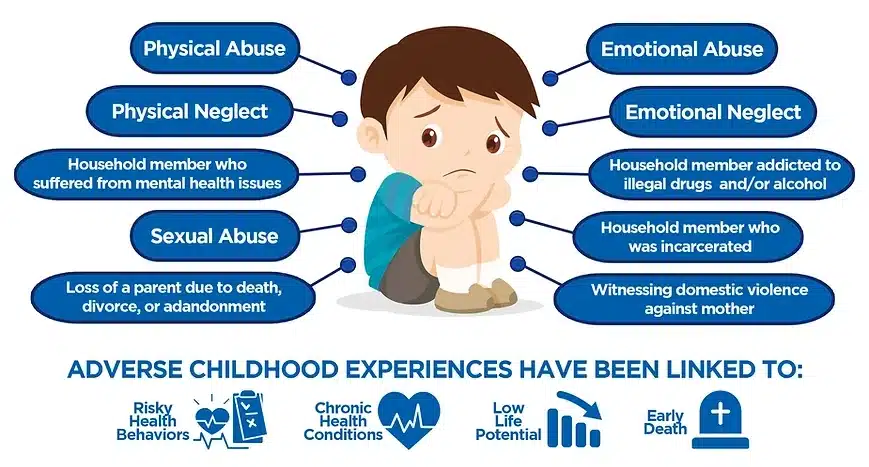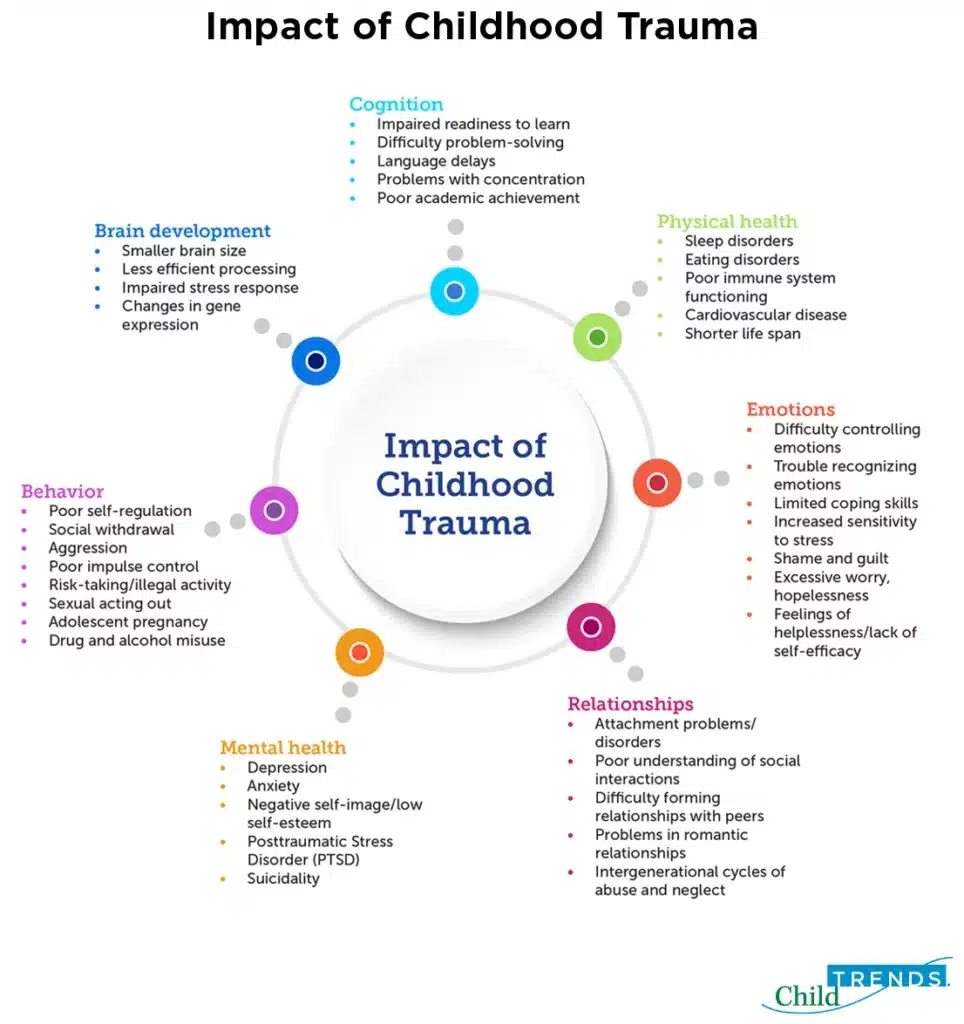How to Help Your Teenager Deal with the Long-Term Effects of Emotional Trauma
As a young person grows from childhood into young adulthood, the brain undergoes a significant number of changes. Negative events that take place during this time can lead to long-term negative effects. This is due to the effects of trauma.
Teen emotional trauma is really quite common. In fact, one study published in Minerva Pediatrica found that teenagers with PTSD were more common than adults with the disorder. Emotional trauma in teens may stem from one traumatic event, or it may come from a series of events that impact the emotions and the brain.
Parents who are concerned about their teenager’s behavior need to know whether behavior comes from trauma or something else. Learning to identify long-term effects of trauma will help families get appropriate help for their struggling teens.
Example of Childhood Traumatic Events in Childhood

Childhood Experiences that Might be Traumatic - Source: Prevent Child Abuse Illinois
Long-Term Effects of Emotional Trauma on Teens
Regardless of the reason for the trauma, if a teenager suffers emotional trauma, they can have long-term, life-altering effects. These include:
- Concentration difficulties – When the brain is in flight-or-fight mode, concentrating is difficult.
- Decreased academic performance – When teens can’t concentrate, they can’t do well in school.
- Mood swings – The anger, sadness, and depression of trauma can sometimes fluctuate and turn into feelings of elation.
- Extended feelings of sadness – Teens who are struggling with trauma may end up with deep, clinical depression.
- Physical muscle pain – Mental health concerns can actually cause physical pain.
- Sleeping difficulties – Sleeping too much or too little can both be signs of trauma, as can disturbing dreams.
- Ongoing fatigue – Even if a teen is sleeping well, trauma can cause ongoing problems with fatigue.
- Feelings of agitation – Feeling “on edge” is a common sign of trauma.
- Shame and guilt – teenagers often struggle with feeling like they caused the traumatic event.
- Eating disorders – Teenagers with eating disorders are often suffering from trauma.
- Feeling nothing – Numbing out to emotions can also be a result of trauma.
- Violent behavior – Anger and rage can lead to violent acting out.

FAQ About Long-Term Effects of Trauma
If you have a teenager who is dealing with some of these concerns, you probably have a lot of questions. Here are some common questions and answers that can help you on the path toward helping your teenager thrive again. Teen trauma is quite common, too. By the age of 16, more than 2/3 of the children in the United States will have experienced a traumatic event, and many of those go on to develop long-term effects of trauma.
What is teen trauma?
Why are teens so susceptible to emotional trauma?
How can I handle the long-term effects of trauma in my teenager?
What role does exercise play in addressing trauma?
How can parents encourage more social activities?
Will teen emotional trauma get better on its own?
What therapeutic approaches work best for teen trauma?
Teen emotional trauma requires evidence-based mental health treatment to successfully treat. While there are many approaches a therapy team can take, these are some of the most effective treatment options:
- Cognitive Processing therapy
- Cognitive Behavioral therapy that understands trauma
- Dialectical Behavioral therapy
- Eye Movement Desensitization and Reprocessing
- Somatic therapy (body-based)
- Play therapy (for young teenagers)
In addition, many teens can benefit substantially from seeking therapy in a residential setting, where they can focus on healing and growth outside of the pressures of daily life.










